| These species are almost impossible to keep and should be left alone. | |
| Most individuals of these species do not adapt well to home tanks, usually not eating and dying off. | |
| These species are moderately hardy, with most individuals acclimating to home tanks if special care is provided. | |
| These species are generally durable and hardy, with most individuals acclimating to home tanks. | |
| These species are very hardy with almost all individuals easily acclimating to home tanks. | |
|
V |
These species have spines or barbs that carry toxins with varying degrees of toxicity. |
 Atlantic
Blue Tang (Acanthurus coeruleus)
Atlantic
Blue Tang (Acanthurus coeruleus) 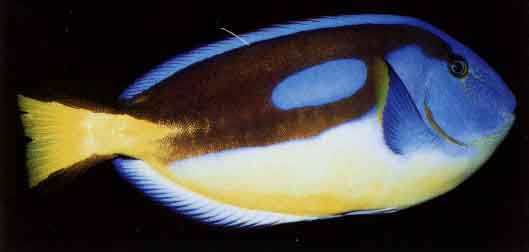 Palette
Surgeonfish (Paracanthurus hepatus)
Palette
Surgeonfish (Paracanthurus hepatus) 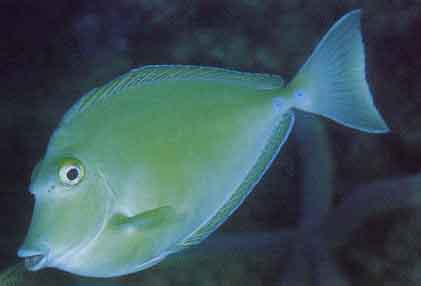 Bluespine Unicornfish (Naso unicornis)
Bluespine Unicornfish (Naso unicornis) 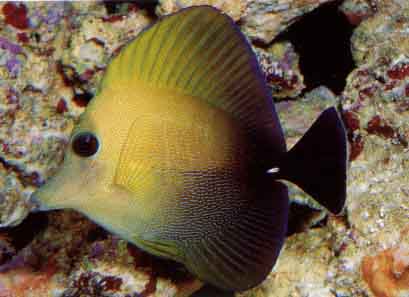 Brown
Tang (Zebrasoma scopas)
Brown
Tang (Zebrasoma scopas)  Chevron Tang (Ctenochaetus hawaiiensis)
Chevron Tang (Ctenochaetus hawaiiensis) 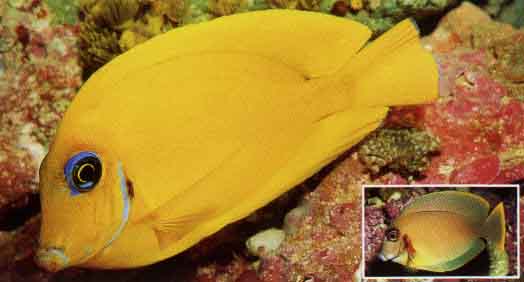 Chocolate or Mimic Surgeonfish (Acanthurus pyroferus)
Chocolate or Mimic Surgeonfish (Acanthurus pyroferus) 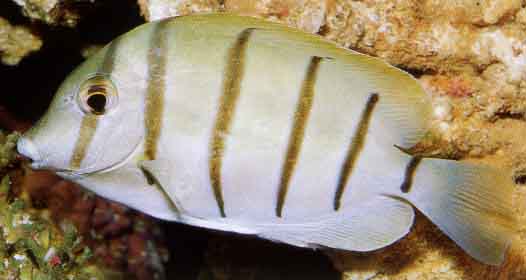 Convict Surgeonfish (Acanthurus triostegus)
Convict Surgeonfish (Acanthurus triostegus) 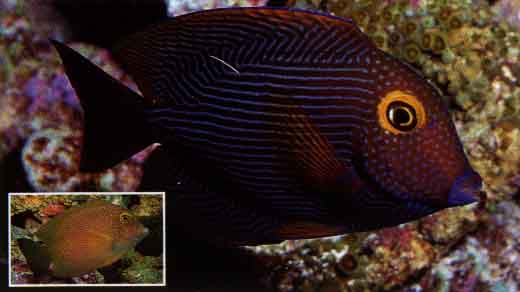 Goldring Bristletooth (Ctenochaetus strgosus)
Goldring Bristletooth (Ctenochaetus strgosus) 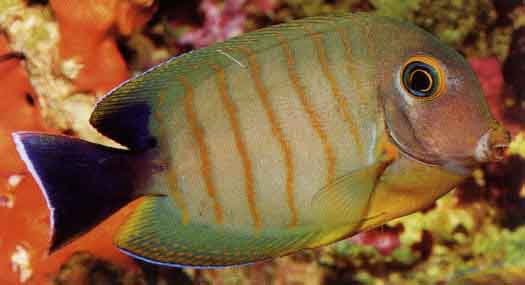 Indian Mimic Surgeonfish (Acanthurus tristis)
Indian Mimic Surgeonfish (Acanthurus tristis) 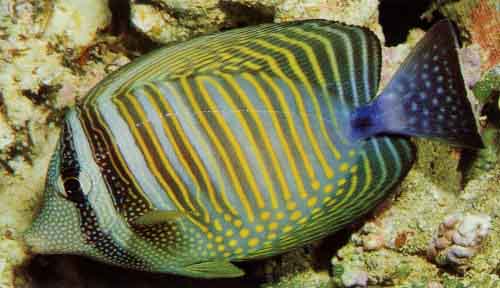 Indian Ocean Sailfin Tang (Zebrasoma desjardinii)
Indian Ocean Sailfin Tang (Zebrasoma desjardinii) 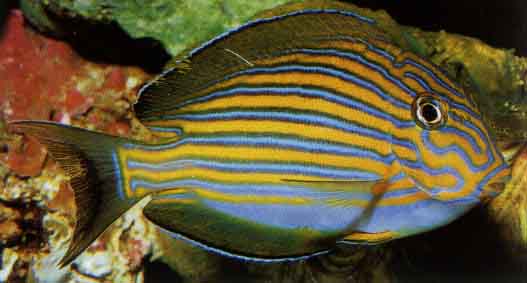 Lined Surheonfish (Acanthurus lineatus)
Lined Surheonfish (Acanthurus lineatus) 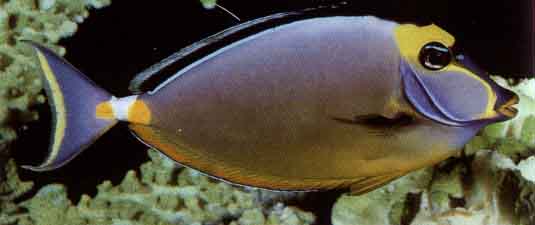 Naso
Tang (Naso lituratus)
Naso
Tang (Naso lituratus) 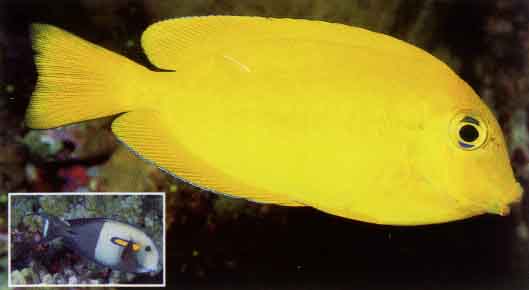 Orangeshoulder Surgeonfish (Acanthurus olivaceus)
Orangeshoulder Surgeonfish (Acanthurus olivaceus) 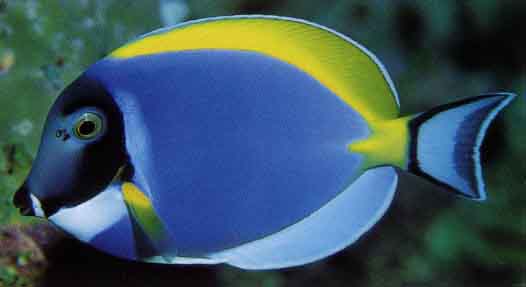 Powder Blue Surgeonfish (Acanthurus leucosternon)
Powder Blue Surgeonfish (Acanthurus leucosternon)  Powder Brown Surgeonfish (Acanthurus japonicus)
Powder Brown Surgeonfish (Acanthurus japonicus) 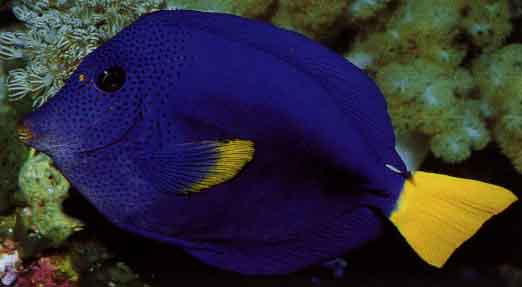 Purple Tang (Zebrasoma xanthurum)
Purple Tang (Zebrasoma xanthurum) 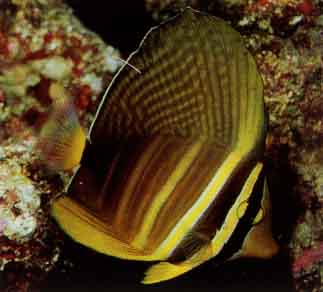 Sailfin
Tang (Zebrasoma veliferum)
Sailfin
Tang (Zebrasoma veliferum) 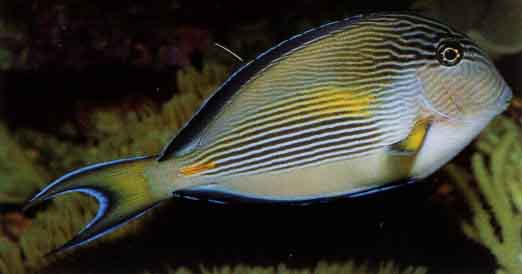 Sohal Surgeonfish (Acanthurus sohal)
Sohal Surgeonfish (Acanthurus sohal) 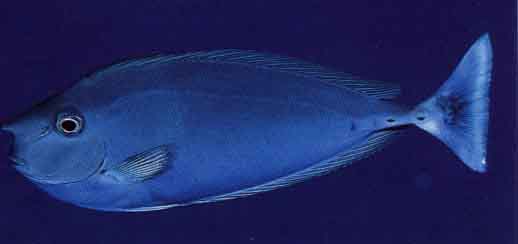 Spotted Unicornfish (Naso brevirostris)
Spotted Unicornfish (Naso brevirostris)  Whitecheek Surgeonfish (Acanthurus nigricans)
Whitecheek Surgeonfish (Acanthurus nigricans) 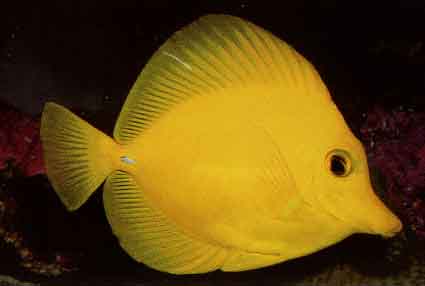 Yellow Tang (Zebrasoma flavescens)
Yellow Tang (Zebrasoma flavescens)